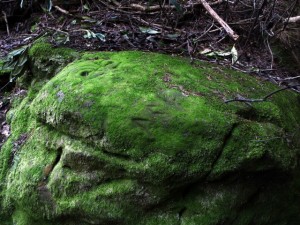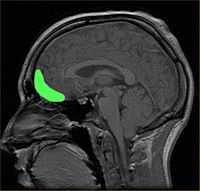There were many more members present this week than there were at my first visit, so I was lucky enough to have the pleasure of meeting new faces while doing art. Together we each selected a rock, and then painted them to demonstrate our inner Vincent van Goghs. I soon learned however that many of the member’s artistic capabilities far exceeded my own, as my green-ish/blue-ish/brown-ish coloured rock became the butt of several jokes – it was called everything from a “lump of moss” to a “deformed orca whale” to a “rock that didn’t even look like anyone had painted it.” My artistic inabilities aside, I had a blast joking, chatting and assisting the members to create their own masterpieces, and was fortunate enough to have some members share some really astonishing and personal stories with me.
A story shared by one member in particular really touched me, as she began to share some of the frustrating experiences she has had with her physician. She described to me what her life was like with her two children before she had a stroke which has affected her right hemisphere, and how it has changed since. The truly heartbreaking part of her story was that her physician blatantly told her that there is no hope for her getting better, that she will be forever confined to a wheelchair, and that there is really nothing much that can be done to increase her mobility. Despite this incredibly discouraging news, she is determined to prove her doctor wrong, as she does tai chi, swimming, and yoga in modified forms every week. Needless to say, I found her strength and determination to be beyond admirable and truly inspiring. As she was sharing her anger and frustrations with me, another member joined in to say that she was told the exact same thing when she was in an accident at age of 15, yet she defied all odds, and even went back to school a year later despite her doctor’s recommendations. She went on to become the Class Valedictorian and although she was also told she would never be able to walk again, there she was at Headway walking independently, standing by my side helping to clear up paint brushes.
This brought me back to the topic of motivation that we have discussed in class, and how a patient’s outlook and emotional state can make a significant difference with their recovery from a TBI. I did some further research and found that interestingly, some studies suggests that hope is emotion-focused and potentially unrealistic leading to poor outcomes, whereas other studies argue that hope is a positive emotional state that is associated with better outcomes in the early stages of recovery, but ceases to be helpful once patients realize the actual consequences of their injury (Shotton, Simpson, & Smith, 2007). This balance between optimism and realism is something that was also touched upon today by Mr. Daniel Corrin, and is something that in hindsight makes sense to me, given that we have learned that there is no single coping method that works best for every patient, and that the context surrounding the individual’s life must also be considered.


